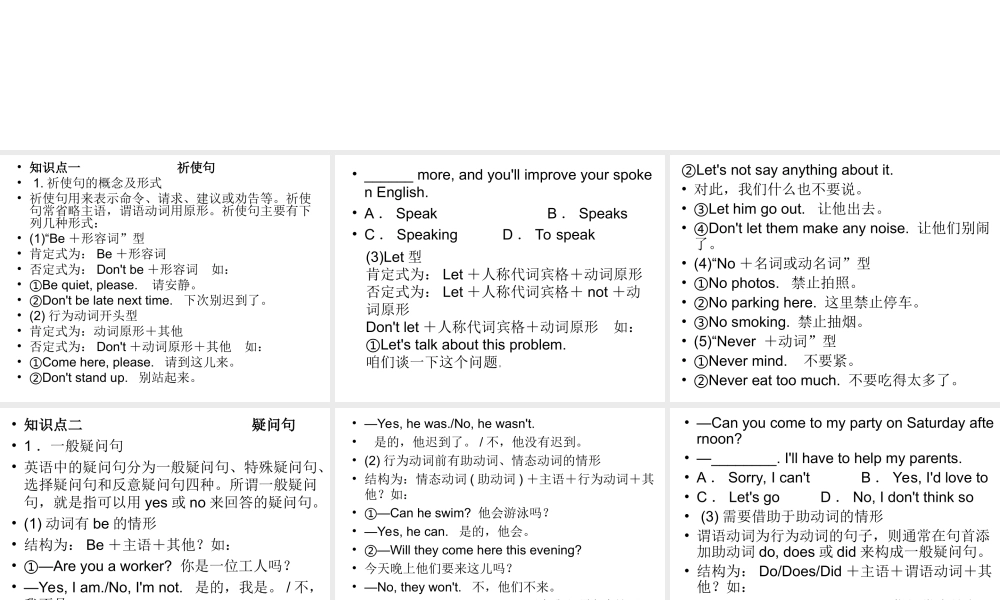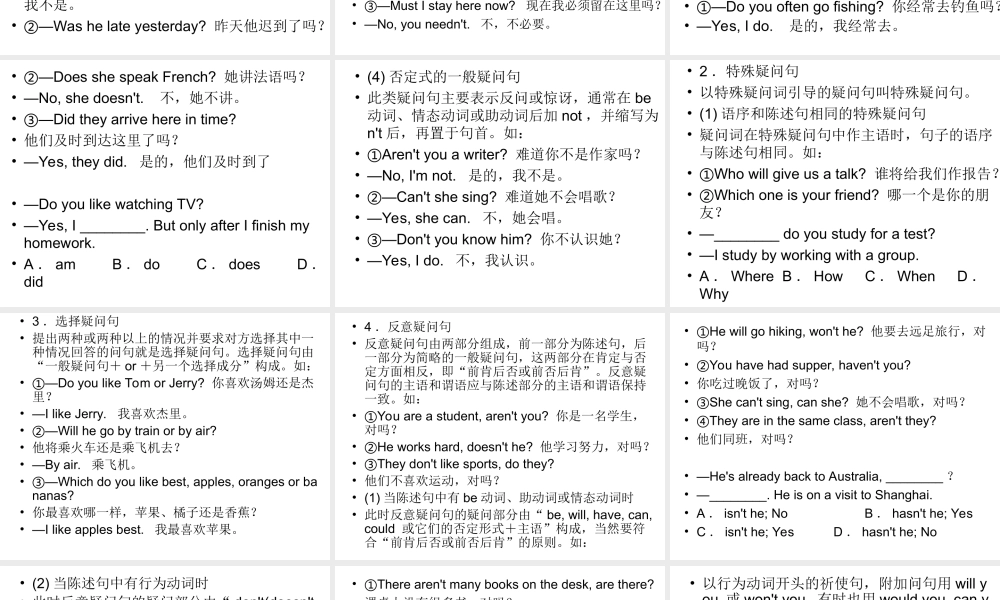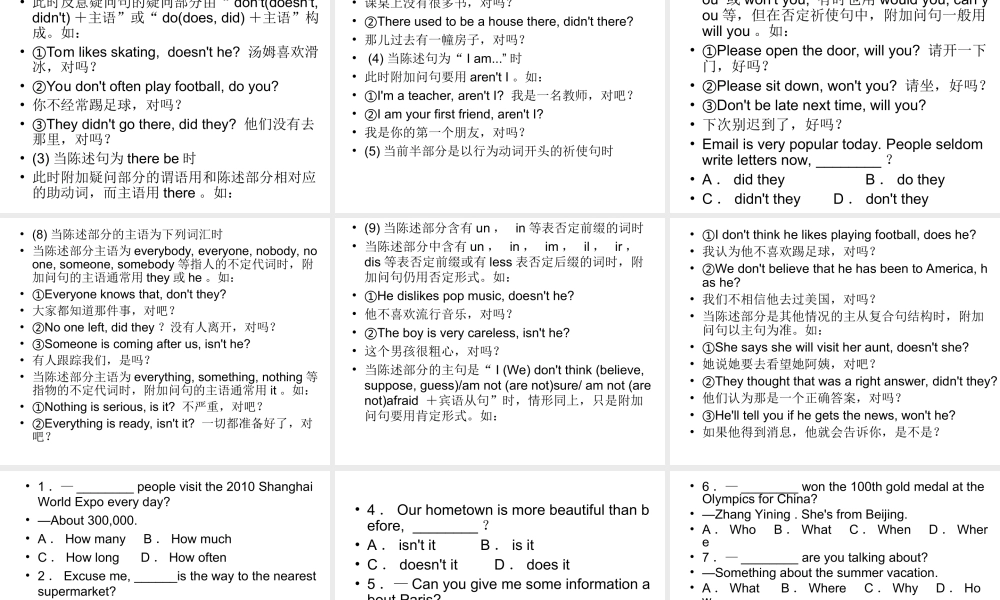祈使句与疑问句• 知识点一 祈使句• 1. 祈使句的概念及形式• 祈使句用来表示命令、请求、建议或劝告等。祈使句常省略主语,谓语动词用原形。祈使句主要有下列几种形式:• (1)“Be +形容词”型• 肯定式为: Be +形容词• 否定式为: Don't be +形容词 如:• ①Be quiet, please. 请安静。• ②Don't be late next time. 下次别迟到了。• (2) 行为动词开头型• 肯定式为:动词原形+其他• 否定式为: Don't +动词原形+其他 如:• ①Come here, please. 请到这儿来。• ②Don't stand up. 别站起来。• ______ more, and you'll improve your spoken English.• A . Speak B . Speaks• C . Speaking D . To speak(3)Let 型肯定式为: Let +人称代词宾格+动词原形否定式为: Let +人称代词宾格+ not +动词原形Don't let +人称代词宾格+动词原形 如:①Let's talk about this problem. 咱们谈一下这个问题。②Let's not say anything about it. • 对此,我们什么也不要说。• ③Let him go out. 让他出去。• ④Don't let them make any noise. 让他们别闹了。• (4)“No +名词或动名词”型• ①No photos. 禁止拍照。• ②No parking here. 这里禁止停车。• ③No smoking. 禁止抽烟。• (5)“Never +动词”型• ①Never mind. 不要紧。• ②Never eat too much. 不要吃得太多了。• 知识点二 疑问句• 1 .一般疑问句• 英语中的疑问句分为一般疑问句、特殊疑问句、选择疑问句和反意疑问句四种。所谓一般疑问句,就是指可以用 yes 或 no 来回答的疑问句。• (1) 动词有 be 的情形• 结构为: Be +主语+其他?如:•—①Are you a worker? 你是一位工人吗?• —Yes, I am./No, I'm not. 是的,我是。 / 不,我不是。•—②Was he late yesterday? 昨天他迟到了吗?• —Yes, he was./No, he wasn't. • 是的,他迟到了。 / 不,他没有迟到。• (2) 行为动词前有助动词、情态动词的情形• 结构为:情态动词 ( 助动词 ) +主语+行为动词+其他?如:•—①Can he swim? 他会游泳吗?• —Yes, he can. 是的,他会。•—②Will they come here this evening?• 今天晚上他们要来这儿吗?• —No, they won't. 不,他们不来。...




